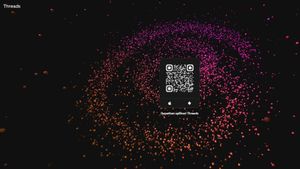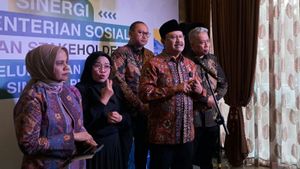JAKARTA - A study conducted by the United Nations (UN) on Monday, August 21 stated that generative artificial intelligence is likely not to completely take over the work of many people, but will actually automate some of their duties, thereby releasing them to do other tasks.
However, the study also warns that climatic work (administrative) is likely to be affected by the hardest, potentially more impact on women's work, given that women tend to work more in this sector, especially in more prosperous countries.
Bursts of interest in the artificial intelligence of its generative and chatbot applications have sparked concerns about the destruction of work, similar to concerns that emerged as assembly lines were introduced in the early 1900s and afterputer computers in the 1950s.
📢 New @ilo study! 📈 Generative Artificial Intelligence #AI is more likely to augment than destroy jobs by automating some tasks rather than taking over a role entirely. Find out more ⤵️https://t.co/Bx6uDFrn1D
— International Labour Organization (@ilo) August 21, 2023
📢 New @ilo study! 📈 Generative Artificial Intelligence #AI is more likely to augment than destroy jobs by automating some tasks rather than taking over a role entirely. Find out more ⤵️https://t.co/Bx6uDFrn1D
However, the study produced by the International Labor Organization concluded that: "Most of the work and industry are only exposed in part to automation and it is more likely to complement than to replace by artificial intelligence."
This means that "the most important impact of this technology is likely to improve work", he added.
The profession that is most likely affected by a generative AI - which is capable of producing text, images, sounds, animations, 3D models, and other data - is an administrative work, where about a quarter of its tasks are heavily exposed to potential automation, the study said.
VOIR éGALEMENT:
However, most other professions, such as managers and sales workers, were few exposed, the study said.
However, the UN agency report also warns that the impact of generative artificial intelligence on affected workers can still be "brutal".
"Therefore, for policymakers, our study should not be considered a calming voice, but as a call to take advantage of policies to overcome technological changes that are already in sight," he added.
The English, Chinese, Japanese, Arabic, and French versions are automatically generated by the AI. So there may still be inaccuracies in translating, please always see Indonesian as our main language. (system supported by DigitalSiber.id)













